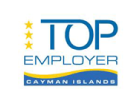Interviewing a Prospective New Boss
by Steve on July 8, 2011
A piece of advice I give candidates, especially in their final interview, is to make time to interview their prospective new boss.
Deciding on a new position is always a difficult decision to make, so you want to make sure that when you do move that you can feel confident that it is a good decision; part of that decision will be based on the leadership you will be reporting into.
While time constraints, politics and courtesies all need to be taken into consideration, I firmly believe that ‘interviewing’ your potential new boss is one of the most important steps in deciding if a role is right. When given a chance and appropriate time, asking a few questions never hurt anyone.
Questions to Ask Your New Boss
How do you give direction when asking your subordinates to work beyond their stated scope?
The answer to this question speaks to autonomy, possible micromanagement and the potential opportunities to move beyond a title and job definition.
How do you prefer to communicate?
With how we work changing so much of late (working from home, hybrid work, returning to the office, etc.), it is important to understand how they expect their team to work. Ideally, you should have some idea of what policies the organisation has in place for flexible working from earlier in the recruitment process, so this question is more to gain insight into how your specific team will work.
If it’s a hybrid work company that has no specific boundaries on where you work, but your new boss’s preferred communication style is in-person, then you can gather you’ll be spending a good chunk of time in the office. If you’re someone who prefers to work remote, then this could be a sign the team may not be the ideal fit.
Who is the best performer on your team, and why?
While some managers may skip around a question like this, there is hope that a few will be honest and share their stories. The best answer I’ve heard from an interview candidate was: “The hiring manager told me that his star at the moment was John because the other 4 team members had all quit within the past quarter.”
We were both interested in the hiring manager’s honesty when we spoke about the interview. The candidate, in particular, found this very refreshing. Receiving honesty from your new boss can tell you a lot about their morals and how they treat their employees. In fact, the candidate has already been aware that this manager had a few challenges. If they were not honest, then the candidate would have turned away. This is why honesty is so important. At the same time, it provided a chance to start building a relationship. Now, it has been 3 years later, John and the placed candidate have remained at the company.
From my own experience, it couldn’t hurt to find a possibly hidden connection sooner rather than later. In my early twenties, I had been terminated from a job due to a brand change; the job no longer wanted a college student. In my exit interview with my former manager, I learned that we went to the same college and were in many similar social clubs – albeit in different generations. That exit interview sparked a relationship that lasts to this day. In fact, at the end of the interview, he recommended me for a job I kept all through college. Who knows how the relationship might have changed for the better if I had asked this question during the intake interview a year earlier.
Are you looking for a new role where you feel confident in the team you’re joining? Reach out to our team at info@cml.ky today for a confidential conversation.
SHARE THIS ARTICLE
Recent Articles







